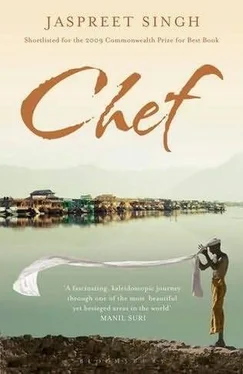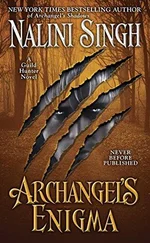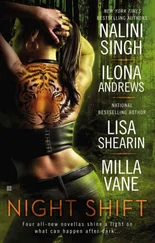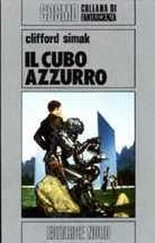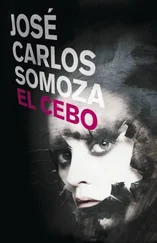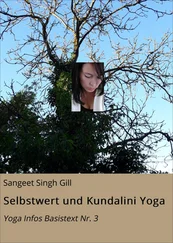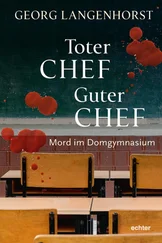I am such a pea.
I don’t like mutters.
Mutter-paneer, mutter-aloo, mutter-gobi.
There is a small area the size of a pea in our brains. I read it in the paper. This area is just behind the eye. Compassion and empathy lie in this area. When the area gets damaged we torture others more easily, and with less mess to ourselves.
In Delhi, while on leave, I could not stop thinking of Kashmir. I would shut my eyes or try distracting myself, but the more I tried the more forcefully the images flashed before me.
When will you get married? Mother would ask, and the question would annoy and sadden me. All my uncles and aunties wanted to hear were tales about the heroism of our soldiers at the border, and I found the June heat unbearable, and the June mosquitoes unbearable at night. Images of mountains and mosques and Raj Bhavan disturbed my sleep. Sometimes I would think about Irem. Sometimes the beauty of the valley and Sufi music filled my dreams. I would see Kashmiri women in pherans pounding dried red chilies. I cut short my holiday and returned on this very train.
Srinagar had become a war zone during my absence.
The streets trembled with armored vehicles.
Militancy was at its peak again.
The enemy was training more men and brainwashing more boys, and wave after wave crossed into Kashmir to set off bombs at public places, even inside army camps. Fifty new battalions were raised by our army to contain the insurgents. For every four civilians we had one soldier. But things were going badly. During those dark days no one on the General’s staff was a Muslim. The only Muslim in the Raj Bhavan was the old gardener, Agha.
Nothing is ready. Nothing.
It is early, no fire in the kitchen yet. I am still planning the day. There is a knock. I see a wrinkled hand. The rear door opens. Agha, the gardener, is standing in front of me. Teeth gone. Skullcap on head, three-day stubble like a dusting of snow. A rag of a sash around his neck.
As usual he doesn’t step in.
‘Do you have something to polish this with?’ he asks.
He is holding an old fountain nozzle. The metal is layered with green patina.
‘Come in,’ I say. ‘It is getting cold.’
To my surprise he starts removing his shoes.
‘You can keep them on.’
He ignores me and walks in bare feet. The kitchen floor is so cold he is standing on the tips of his toes.
‘No Problem,’ he says.
‘This might work,’ I say, handing him the bottle of acid I normally use to polish the sink.
‘Good,’ he says and picks up an old rag and starts work on the nozzle.
His presence makes me uneasy. He keeps muttering poetry while polishing.
‘Now you may leave,’ I say.
‘No Problem,’ he says.
He does not leave.
‘Do you have a minute?’ he asks.
‘It has to be quick,’ I say.
‘Why did you remove your turban?’ he asks.
‘Yes,’ I say. ‘My hair is short now.’
‘What will your father say?’
‘He is dead, Agha. He is buried in the glacier.’
The gardener stops polishing.
‘Fathers never die,’ he says.
I lift my hand to my face. The beard is gone now, my cheeks are smooth. The turban is no longer on my head, but I sense its weight. It was a big part of me and I removed it. I look at my hands. All the muscles of my hands. The pores of my skin. The tips of my thumb and middle finger. The whorls, the roughness, the cuts. My hands are freezing. They start shaking. I strike a match. It doesn’t work. Agha helps me light up the stove.
‘Do you still have a minute?’ he asks.
He has no patience.
‘Please be quick,’ I say.
‘No Problem,’ he says.
‘Yes, yes, be quick.’
‘My son disappeared two days ago.’
‘He will come back,’ I say.
‘No,’ he says.
‘Did he become a militant?’ I ask.
‘He simply disappeared.’
‘Sorry, I must get back to work.’
The nozzle is shining now, reflecting Agha’s face.
‘No Problem,’ he says and walks slowly to his old shoes and shuts the door behind him. A cold draft hits my cheeks.
Later in the evening when I am done with the dinner I spot him sitting by the marigolds in the garden, smoking a hookah. His breath stinks of nicotine.
‘No Problem,’ he says.
He looks more dead than alive.
‘What do you mean?’ I say. ‘Your son.’
‘He is gone.’
‘No, no. But how do you really feel? Not just about your son, but the situation in Kashmir?’
‘Bad things are expected during the turmoil,’ he says. ‘Why should the most beautiful place on earth be spared bad things? People are turning mad here. This place is becoming a pagal-khana, a lunatic asylum.’
‘Where do you suspect your son is?’
‘They should stop torturing our boys,’ he says.
‘They?’
‘Military,’ he says.
‘Where?’
‘In the hotels,’ he says.
‘You are a joker, Agha,’ I say.
‘No Problem,’ he says.
His words disturbed me a lot. I found it difficult to cook. Difficult to sleep. It was true. Our army had occupied many hotels in Srinagar. But they were the new residences for our officers and jawans, I had not imagined them as sites of torture. I decided to visit. Part of me wanted to disprove Agha. Barring a few bad apples our army was basically good. The only way it was possible for me to access the hotels was by taking extra initiative. General Sahib was pleased by my proposal, and he granted me the permission to inspect kitchens in all the army-occupied hotels. I became a part-time inspector of kitchens.
Hotel Athena. Hotel Duke. Hotel Nedou. Oberoi Palace. More than thirty-six hotels now belonged to the army. Before inspection, I would read the tourism department’s write-up for that particular site, then a special vehicle would take me to the hotel (cycling was no longer safe) and I would arrive unannounced just before meals and taste the food and inspect the kitchen hygiene, and then excuse myself for a few minutes, and during that brief time I would hurriedly check the rooms.
Agha was wrong.
Our army was out shooting films. Everything was being done in the open, there was nothing to hide, the rooms were clean, certain scenes were being shot inside the hotels, others outdoors. Light. The most important ingredient in cinema is light. One needs the right kind of light to screen a film, just like one needs the right kind of light to shoot a film. (I remember, in Grade 3, I watched a film shot in Kashmir. The hero fought the villains first in the Mughal garden, then in the colonial-style hotel with red shingles. There was something magical about the quality of light in Kashmir.) Because of the new assignment I witnessed the shootings of many films. I was able to understand the connections between light and cinema. I was also able to compare the art of filmmaking with the art of cooking. A dish does not last more than a meal, but a film is for ever. Some people give up eating meat after watching the slaughter of a goat. But no one gives up the movies after witnessing a shooting.
If I were asked to give a collective title to all the films our army was shooting in the hotels, it will be called Masters of Light or Colonel Madhok’s Diary of a Bad Year. There was a scene which involved a man tied with a rope to an iron pillar. A captain shoved a cricket bat up the man’s anus. Light was warm and soft in the room. There was a boy crawling like an infant in a pool of his own shit and urine. There were naked men in the semi-darkness of sparkling Diwali lights. Two or three German shepherds snarled at their privates, men’s penises squirming. In Hotel Nedou I discovered men standing under light so harsh and bright it burned their skin, and a machine kept emitting sounds like ping, ping, ping while giving shocks to the testicles of a Kashmiri tied to a wet mattress. In Hotel Athena I found hair and nipples and electrodes in cold outdoor light. Downstairs, close-up of a detached hand in underexposed light. Blackout. Pigs. Blood. Semen. In Oberoi Palace four male nurses were force-feeding two men in the fading light of the evening. There were tubes stuck up their noses and into their throats. But, I was not looking for men.
Читать дальше
Конец ознакомительного отрывка
Купить книгу
